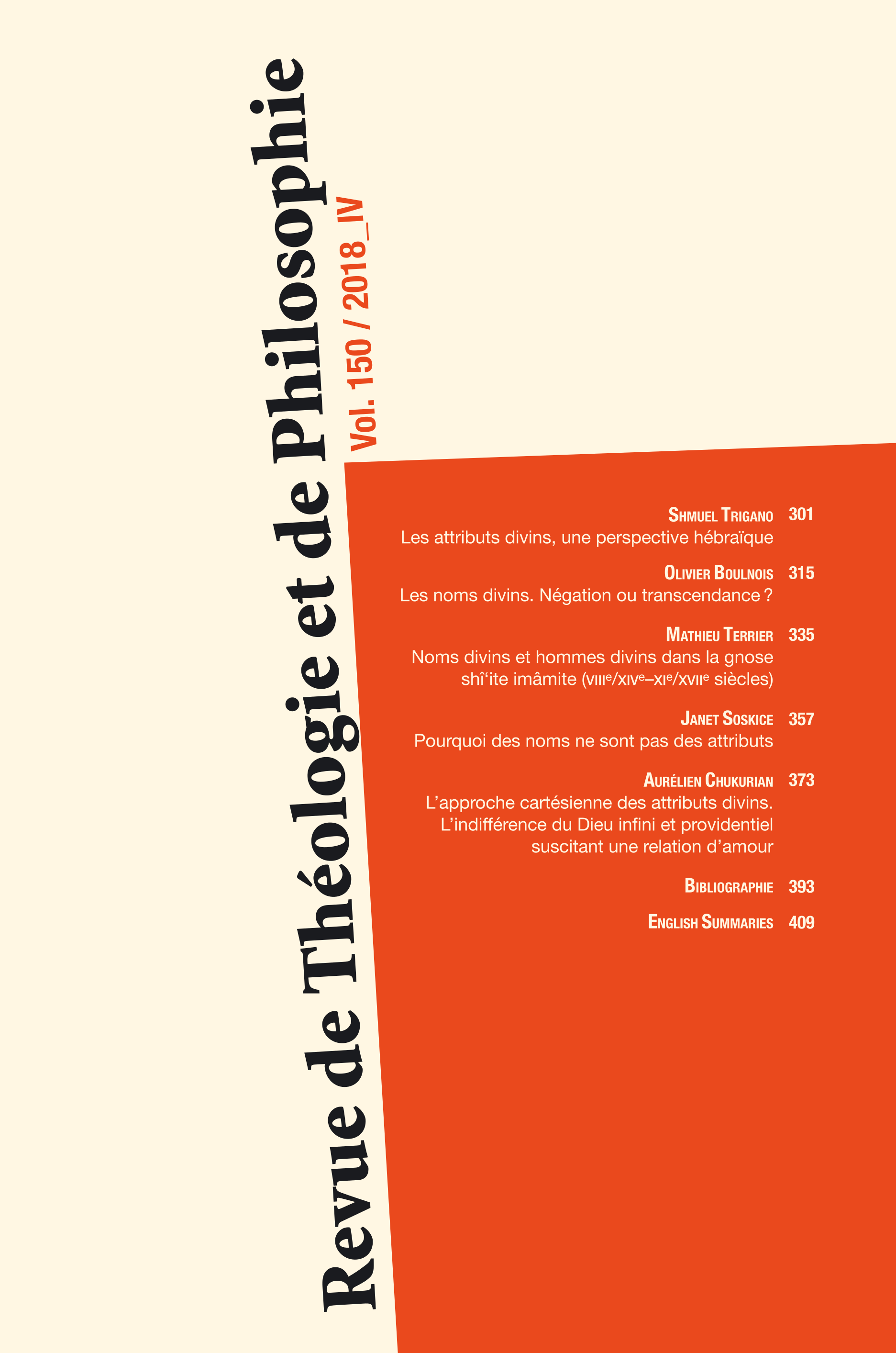Descartes’ Approach of the Divine Attributes
How the Indifference of the Infinite and Providential God Gives Rise to Love
Abstract
The article explores Descartes’ views on the divine attributes in order to show its promise for the relation between philosophy and theology. As a philosopher whose thinking rests on the idea of God, Descartes considers incomprehensible infinity as the heart of God’s nature. All the other attributes flow from it. The originality of his argument lies in his way of bringing together thinking about God (and avoiding anthropomorphisms by stressing the unity of the divine essence) with the view of an authentic relation between the human subject and God. In discovering God’s providence, the philosopher comes, through the use of his reason, to a genuine love of God, a love which takes the form of a passion. An indefectible pretention to truth suffuses Descartes’ rational approach of God, but without any meritorious dimension: refusing to trespass the limits of reason, Descartes leaves out the question of grace and of salvation, which belongs to the realm of theology.How to Cite
[1]
Chukurian, A. 2019. Descartes’ Approach of the Divine Attributes: How the Indifference of the Infinite and Providential God Gives Rise to Love. Revue de Théologie et de Philosophie. 150, 4 (Feb. 2019), 373–392.
More Citation Formats




